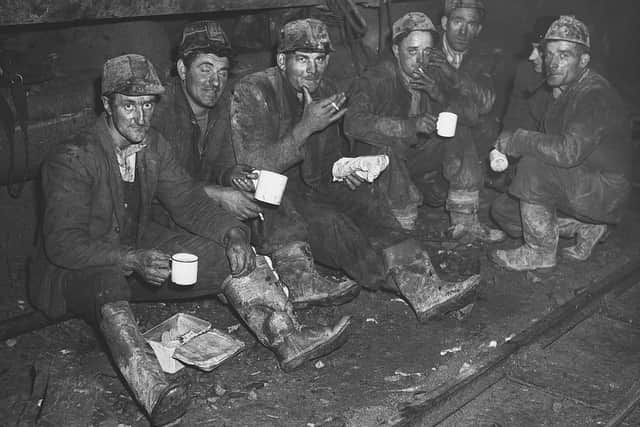Photographs and accounts of Donegal people who worked in Scotland sought for exhibition
and live on Freeview channel 276
Do you have photographs or memories from your time there that you would be willing to share? Donegal County Council is working on a major exhibition to document the working experiences of Donegal people in Scotland.
“There are few families in County Donegal that have not been affected by emigration or participated in seasonal migration” said Joseph Gallagher, County Donegal Heritage Officer. “In the twentieth century, Scotland was a familiar destination for people leaving County Donegal in search of work. In recent years, the stories of some of their experiences and successes have been documented but, for a long time, they have been overlooked or considered too ordinary to be recorded. Emigration from Donegal to Scotland was particularly high during the 1950s and 1960s. With the passage of time, the opportunities to record first-hand accounts of the experiences of Donegal people working in Scotland are disappearing. We’re keen to capture stories and images while we can and to celebrate the working lives of Donegal people in Scotland”.
Advertisement
Hide AdAdvertisement
Hide AdThe Culture Division of Donegal County Council (Heritage Office, Museum, Archives, Library Service, Regional Cultural Centre and Arts Office) in partnership with the Mellon Centre for Migration Studies is preparing a major exhibition on the historical context, working conditions and types of employment that Donegal men and women found in Scotland. This could include those who worked in seasonal work for parts of the year or those who settled in Scotland or those who returned to Donegal in later years. The project will focus on a variety of industries and workplaces in Scotland from 1940 to 1990 including farms, buses, railways, building sites, engineering projects (such as tunnels, bridges, dams or hydro-electric schemes), shipbuilding, domestic service, hotels, shops, biscuit or chocolate factories, health service, religious life and teaching.


“We want to hear from Donegal people who worked in Scotland especially those who have a story to tell, photographs to share or objects to lend that could form part of this exhibition” added Joseph Gallagher. If you are willing to share your story, contact the County Donegal Heritage Office on (074) 917 2576 or by e-mail at [email protected] If you have photographs of Donegal men or women at work in Scotland, they can be scanned free-of-charge at the County Museum in Letterkenny, the County Archives in Lifford or the libraries in Derrybeg, Dungloe, Donegal Town, Bundoran, Raphoe, Buncrana, Moville, Milford and Letterkenny.
Donegal County Council has commissioned oral historian Tomás Mac Conmara to undertake interviews with a selection of Donegal people who worked in Scotland and has appointed the History Research Unit at Ulster University to research and write a booklet on the occupations and places of work of Donegal men and women in Scotland between 1940 and 1990.
“There was a strong sense of the hard physical labour involved in all aspects of migrant work” said oral historian Tomás Mac Conmara about the interviews conducted to date.
“However, the acceptance that there were few other options open to many Donegal people in the mid-twentieth century is clear from these initial recordings. It was also evident that any loneliness of being away from home was countered by the presence of fellow county men and women across Scotland. The personal stories of how Donegal people stuck together as well as the social aspects of life as a migrant worker have really brought new dimensions to our understanding of that whole experience.”
If you have items or objects relating to your work in Scotland (such as boat or bus tickets, hand tools, work cards, uniforms, letters, suitcases and their contents) that you would be willing to lend for the exhibition, please contact the County Museum on (00353 74) 912 4613 or by e-mail at [email protected]